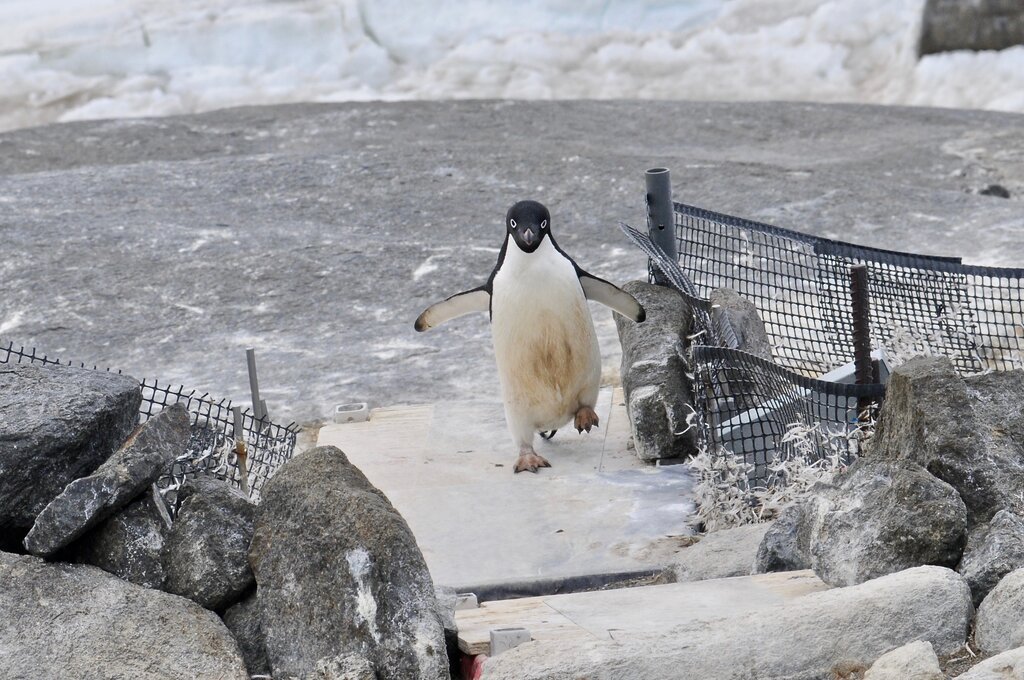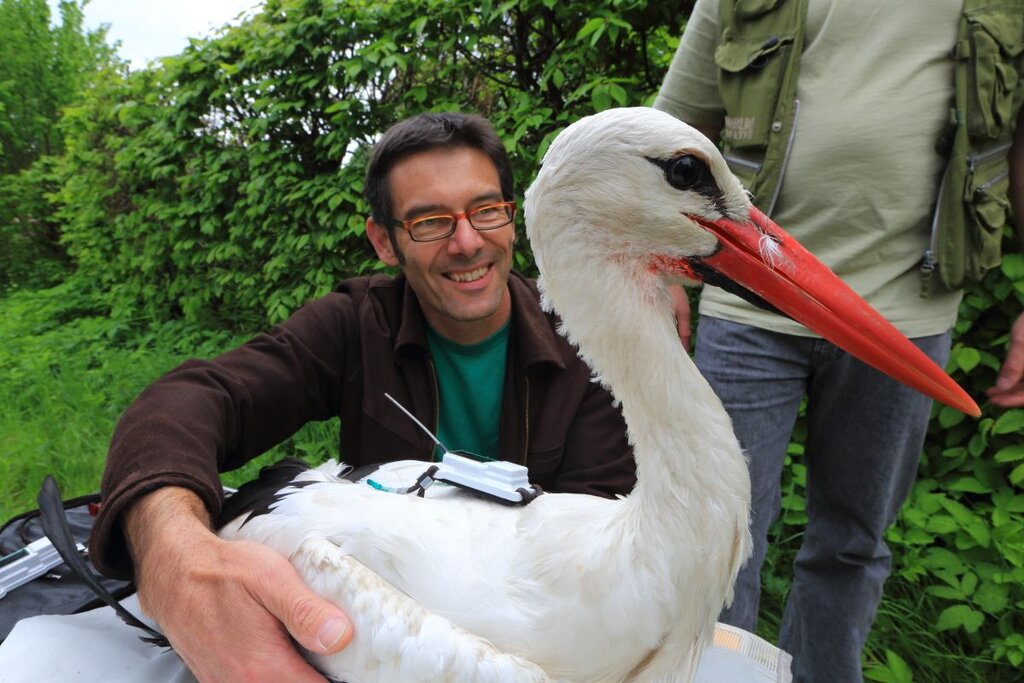
Martin Wikelski, director of the Max Planck Institute of Animal Behavior, Germany attaches a transmitter to a Scarlet macaw in Guatemala prior to the lockdown.
Credit: Icarus/ Sergio Izquierdo
Post-pandemic, fieldwork faces a remote future
COVID-19 is forcing researchers to rethink ways of amassing data.
25 August 2020
When Richard Primack, a biologist at Boston University in Massachusetts, realised that many of his students would be unable to learn new fieldwork skills this year, he switched to teaching them how to analyse existing datasets more creatively.
In March, he and co-leader Amanda Bates launched the PAN-Environment working group to explore how lockdown measures are affecting the environment.
To date, 150 researchers have contributed more than 70 datasets collected in 47 countries, including turtle hatchling counts on deserted beaches in India and illegal deforestation rates in the Amazon rainforest.
Their methods point to the future for fieldwork in a more travel-wary world post-pandemic. To investigate the effects of lockdown on the environment, they have been accessing automated technologies, reusing old datasets, and gathering anecdotes from news stories and social media posts.
Bates, co-leader of the PAN-Environment working group and a marine biologist at the Memorial University of Newfoundland in St. John’s, Canada, says the pandemic is also pushing forward protocols to train local community members to collect data. “It’s building the culture through which we can gather data virtually,” she says.
A cold hard look
Since the Australian Antarctic Program suspended its 2020-21 summer field season in April, researchers have maintained observations such as air temperature and snow accumulation using automated systems set up prior to the travel bans.
There, where even at the best of times access is limited and conditions are unforgiving, researchers are hopeful that the pandemic will hasten the adoption of automated vehicles, low-maintenance sensors, and other remotely operated technologies, forever changing how fieldwork is done on the continent.
“COVID-19 has had a big impact, but it’s also reinforcing approaches that were already in place,” says Dirk Welsford, acting chief scientist at the Australian Antarctic Division, which leads the Australian Antarctic Program.
Westford predicts that as remotely operated vehicles become more reliable and cheaper to build, they will be deployed “left, right, and centre” in Antarctica. This will allow researchers to focus on designing experiments and analysis, rather than spending weeks collecting data in harsh conditions.
“COVID-19 will certainly accelerate this,” he says.
Fieldwork 2.0
In the absence of fieldwork responsibilities, Antarctic researchers are also seeking new insights in old datasets.
A team led by Johnathan Kool, who manages the Australian Antarctic Data Centre in Tasmania, is making the Australian Antarctic Program’s archived datasets more accessible by uploading them to cloud-based servers so they can be accessed as a webpage.
This has highlighted the importance of ensuring that data is ‘FAIR’ (findable, accessible, interoperable, and reusable), says Kool.
“It’s hard to download four terabytes of whale acoustic data or seismic data,” he says. “There’s a big push towards making better use of the information we already have and increasing the accessibility of our data streams.”

Mark Horstman
Homebound researchers the world over are working at making the most of existing datasets. It’s been particularly important for students and early career researchers who have not collected enough new data to publish papers, says Bates.
She says researchers should get out of the mindset of only publishing their data once.
“There’s a negative connotation about reusing data, but there are so many diverse pathways that use data in different ways,” says Bates. “If we are going to tackle some of the grand challenges of our time, we have to combine data from different places and sources.”
Rare chance to quantify the human impact
Lockdown measures and travel bans have offered the opportunity for researchers to answer one of the biggest questions in conservation science: how does human activity impact wildlife?
In May, biologist Christian Rutz and his colleagues launched the COVID-19 Bio-Logging Initiative to compare animals’ movements before, during, and after widespread lockdown measures came into effect.
More than 300 researchers from around the world have contributed roughly 200 datasets on 180 species of fish, birds, and mammals to the project so far. These datasets, collected by tiny electronic sensors fitted to animals prior to the pandemic, are uploaded to online tracking databases, such as Movebank, for Rutz and his team to clean and standardise for analysis.
Rutz, a professor in the School of Biology at the University of St Andrews in Scotland, says the coordinated efforts of the global research community during the period of crisis have been “completely unprecedented”.
“What we are doing in response to this crisis goes well beyond routinely sharing data on a repository.”

Max Planck Institute of Animal Behavior/Christian Ziegler
Turning the tide on fly-in, fly-out research
By restricting the international travel of most field scientists, the pandemic has also accelerated the practice of giving community members more autonomy when collaborating on research projects in their local area.
Bates and her colleagues are working on a separate project with the Inuit community in Nunatsiavut, Canada, investigating how climate change is affecting local coastal and river ecosystems, such as water quality and species abundance.
Bates’ diving field trip in September was cancelled due to the pandemic, but community members have been gathering data for Bates and her team to access remotely.
The success of the project could result in a greater emphasis in future on local communities conducting fieldwork, rather than visiting researchers, she says.
While the pandemic has been tragic on a “colossal scale”, says Rutz, it has presented a rare opportunity to understand how humans affect the natural world. It’s also provided a glimpse into what the long-term future of fieldwork could look like: smaller teams, more sophisticated autonomous equipment, and a smarter approach to data analysis.
“Nobody is celebrating this time,” says Rutz. “But this period of crisis is an opportunity that we can’t afford to miss.”
